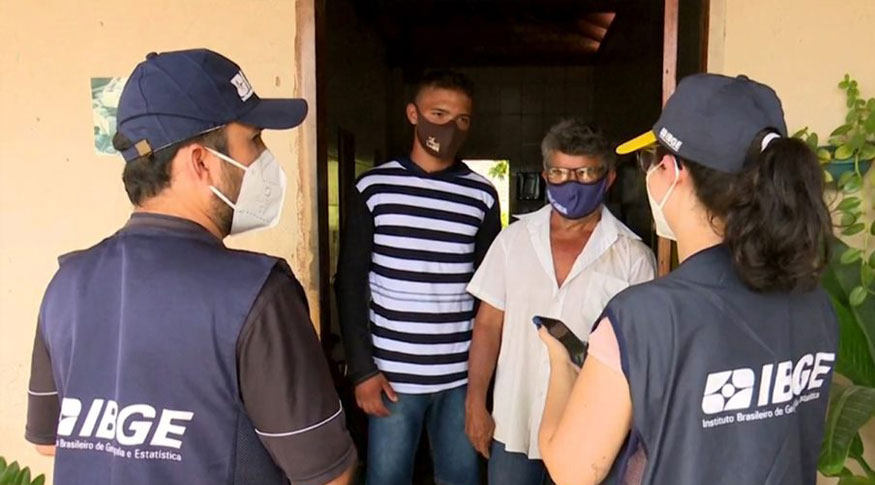Census Closure Committee works to guarantee the quality of coverage
March 21, 2023 11h55 | Last Updated: March 22, 2023 11h09

Beyond new technological resources, the 2022 Census, which is in the supervision phase, counts for the first time with an assessment committee to close the survey. Created in October 2022 by the Directorate of Surveys (DPE), the Census Closure Committee (CFC) mainly aims at guaranteeing that all the 5,570 Brazilian municipalities have been enumerated, either validating or questioning the coverage made.
The Committee meets on a weekly basis and it is integrated by representatives of the DPE, Directorate of Geosciences (DGC) and Coordination of Census Operations (CEGOC). “The idea was that we assessed some selected indicators by following up the Census data collection, gathering several areas that have indicators related to the coverage of the survey in the municipalities,” explains Cristiane Moutinho, the IBGE Coordinator of Population and Social Indicators and member of the group.
Some information analyzed by the Committee refers to statistics of population and territory coverage, involving issues like the relation between collected and estimated data, as well as housing units for occasional use, empty ones, closed ones or housing units with absent residents. Altogether, 28 indicators are regularly analyzed by the group of professionals. It is followed by the validation of the territorial coverage.
Even working for just four months, the Committee proved to be an efficient tool to amend potential imprecise information, providing more reliability to the 2022 Census. “The balance is very positive. Especially in the states where the data collection was in an advanced step, many issues pointed out by us made them return to the field work and check their notes,” highlights Moutinho. As of now, more than six thousand actions were taken by the Committee aiming at eliminating data divergence.
“The collective work developed by the Committee is part of a major effort of the IBGE to assess data quality towards the coverage of the municipalities. We hope that the results also become a legacy for future census operations,” completes Moutinho.
